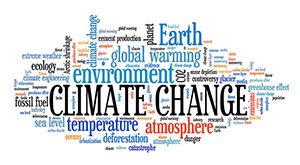
European securities regulators took a rare misstep in April when they watered down disclosure rules on sustainable investment, meant to give investors clear information on the environmental, social and governance risks in their funds. Fossil fuels, they suggested, should only cover coal, not oil and gas. This, said much of the sector, would confound efforts to halt ‘greenwashing’ – attempts to deceive investors into believing their funds are being channelled into environmentally sound assets.
This matters, because demand for the broad range of ‘responsible finance’ – environmental, ethical, faith-based, green, impact, social, sustainable, and their many cousins – has soared among both private investors, particularly at the top end of the market, and institutions, such as pension funds in many countries, driven in part in that case by sterner disclosure standards. Wealth managers, both front line and back office, and securities issuers, face a much better-informed and more wily client base than even a year ago. Regulations in this field have doubled in the past five years, says Bloomberg.
When the virus is vanquished, when we get back to the future, climate change (and its companion, biodiversity) will again come high on clients’ and regulators’ agendas. It will be the biggest risk for the coming decade; there will be no self-isolation; and we must act in advance of the real problems emerging. A colourful cast of characters would have us believe the climate threat is fake news. The chemistry, and other science, says otherwise: humankind’s dominion over Earth is as great as the forces of nature, and our use of this power has opened up a new geological epoch – the Anthropocene.
When the virus is vanquished, when we get back to the future, climate change (and its companion, biodiversity) will again come high on clients’ and regulators’ agendasThe finance sector has much to offer, exploiting its power and leverage, and there is great profit to be made by agile players. Sir Roger Gifford, banker and former Lord Mayor of the City of London, is a great cheerleader for responsibility in finance. In a statement on the Green Finance Institute’s (GFI) website he says, “It is critical that financial markets and policymakers collaborate to create the solutions to move the global economy towards a more sustainable future.” And, while as chair of GFI he passionately believes that “bankers can save the world” (from a joint CISI, Chartered Banker Institute, University of Edinburgh Business School event in February 2019), his eyes are wide open to the commercial opportunities here for the financial world’s best and brightest.
But actions are overdue. Finance needs to bridge the understanding gap, avoid preaching to the converted, stop boxing ‘responsible finance’ as an alternative, rather than mainstream. We need to get back to basics, to develop clear responses to market and regulatory demands, rather than fluff up the ‘green’ marketing. And data needs to be coordinated to provide relevant information to investors, particularly institutions and ultra-high-net-worth private capital owners. There is too much fragmentation.
Almost all wealth managers globally put wealth transfer among their main concerns, according to a recent global survey of the sector by Refinitiv. Consequently, the best wealth managers are focusing much effort on the next generation, which takes the climate threat seriously. (Many grandparents, keen to be ‘good ancestors’ to their grandchildren, are no slouches when it comes to querying responsible credentials.) Most big firms have revised their client segmentation models to take those shifts into account. Citigroup’s chief European economist, Arnaud Marès, quoted in The Telegraph (29 April 2020), believes that the psychological and social shock of Covid-19 will accelerate the way people quantify the climate threat: “The pandemic is in effect the first systemic ecological crisis in modern times, with immediately visible and profound economic cost.”
Following the First World War, the victors planned “a country fit for our heroes to live in”. A century later, after this invisible enemy has been seen off, we want “a planet fit for our grandchildren to live on”.
This article was originally published in the June 2020 flipbook edition of The Review.
The full flipbook edition is now available online.
All CISI members, excluding student members, are eligible to receive a hard copy of the quarterly print edition of the magazine. Members can opt in to receive the print edition by logging in to MyCISI, clicking on My account, then clicking the Communications tab and selecting 'Yes'.
Once you have read the flipbook edition, keep coming back to the digital edition of The Review, which is updated regularly with news, features and comment about the Institute and the financial services sector.